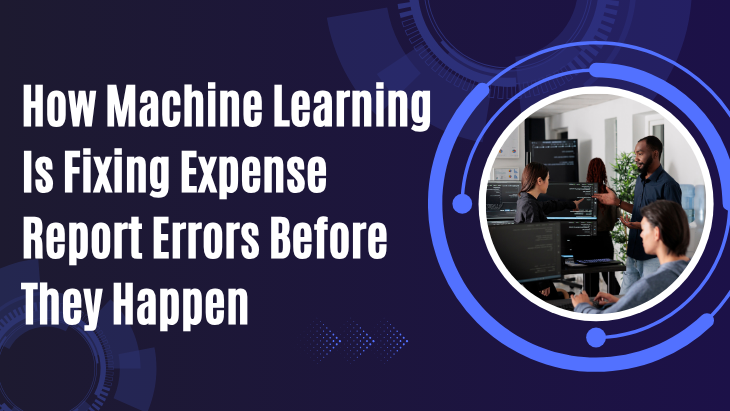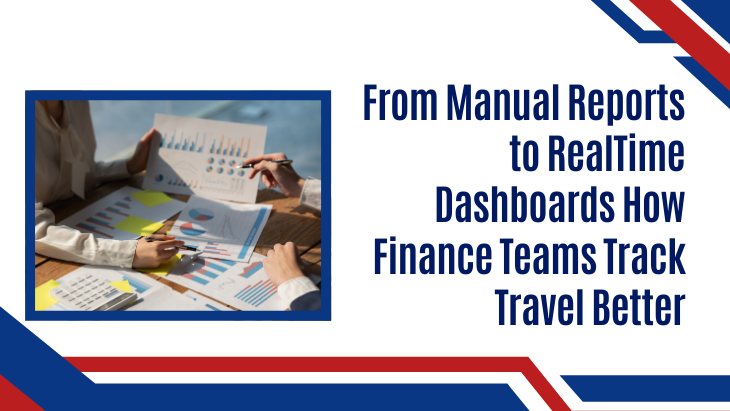In business, every penny counts. But expense reports are one of the most flawed administrative procedures in contemporary enterprise. From misplaced category receipts and repeated submissions to inaccurate mileage entries and lost policy guidelines, even tiny miscalculations can develop into huge pots of waste. AI-Powered Business Travel & Expense Management For finance teams, these errors don't simply blow money they cost time, diminish compliance, and infuriate employees. Old remedies have been too dependent on manual checking or simple rule-based systems that just don't scale or learn quickly enough. But today, with the advent of AI-driven business travel & expense management systems, the trend is changing.
What Machine Learning Has to Offer
Machine learning, the central branch of artificial intelligence, functions by identifying patterns in big data sets and learning from them. Applied to expense reports, ML models review thousands millions even of prior entries, receipts, categories, and usage. From this, the system becomes attuned to recognize what a "normal" expense is and, more importantly, what isn't. Rather than catching errors post-submission or during audits, machine learning catches discrepancies in real-time sometimes even stopping users from submitting false reports altogether. This proactive ability is a head-turner for companies that want to wring tighter controls without suffocating employees.
Real-Time Error Detection with Contextual Intelligence
What is so powerful about machine learning in the world of expense management is its contextual intelligence. While keyword detection or hard-coded rules are limited, AI has the ability to comprehend the context of transactions. If a worker posts a $100 dinner expense in a place where meal allowances are limited to $50, the system will not only flag it due to the price but due to it knowing what is customary for that time, location, and position. Likewise, if the same duplicate receipt is posted weeks later, the AI can detect it on date, merchant, and value despite differing file names. This degree of real-time contextual verification was just not possible with older systems.
Policy Compliance Integrated into Every Submission
Business travel and expense management software powered by AI also embeds company policy in the submission process. Rather than leaving it up to employees to recall expense guidelines or worse, disregarding them machine learning enforces compliance by integrating policy rules into the process. When a user tries to post an out-of-policy expense, the system sends immediate feedback or prevents submission outright. Gradually, as the AI system gathers data on frequent deviations or policy updates, it adjusts. This real-time integration of rules not only minimizes errors but also enhances company governance.
Removing the Burden from Finance Teams
One of the largest annoyances for finance teams is reviewing and fixing mistakes manually after the fact. This downstream process is a waste of time and demoralizes departments. Machine learning turns this on its head by serving as a first-line reviewer, automatically verifying, validating, and structuring expense data prior to finance. The outcome is a streamlined process with decreased back-and-forth emails, less rework, and quicker reimbursements. For expanding businesses with huge amounts of travel and business expenses, this automation scales smoothly something no human team can accomplish.
Building Smarter, Self-Learning Systems
The real beauty of machine learning is how it gets better over time. Every time an expense is submitted and adjusted, the AI learns from the experience. It retains knowledge of which kinds of claims are most often the issue, how users react to feedback, and how exceptions are managed. This ongoing feedback loop refines accuracy and creates a wiser system attuned to the individual idiosyncrasies of each company. Whether it's adapting for geographic travel standards or identifying repeat vendors, machine learning gets smarter the more it's applied.
Enhancing Employee Experience and Trust
Workers are frequently irritated by antiquated expense solutions that delay reimbursements or deny legitimate claims because of inflexible policies. Artificial intelligence-based solutions enhance this process by simplifying, accelerating, and optimizing submissions. Most contemporary platforms are now employing receipt scanning, natural language processing, and even voice recognition to streamline data entry. When people feel that their expenses are being examined equally, accurately, and promptly, trust in the system increases. That, in turn, translates into increased adoption, quality data, and reduced compliance risk.
Fighting Fraud with AI Precision
Expense fraud, whether on purpose or unintentional, can be a heavy burden for a company. Machine learning improves fraud prevention by detecting anomalies that could be overlooked by people. For instance, if a traveler repeatedly rounds up mileage expenses or claims exaggerated meal costs on trips, AI systems can flag these patterns for inspection. The system doesn't accuse it merely calls attention to potential red flags with evidence to back it up. This degree of accuracy assists companies in reducing fraud without establishing a suspicion or micromanaging culture.
Data-Driven Insights for Strategic Planning
Apart from correcting inaccuracies, business travel & expense management systems powered by AI create useful information for long-term planning. Finance leaders can spot chances to trim expenses, renegotiate contracts with vendors, or change policy limits by looking at spending habits through departments, teams, and geographic locations. With more precise, cleaner information, companies can better project budgets and align expenditure with strategic goals. The outcome isn't merely fewer errors it's improved decision-making across the board.
Conclusion
Wait and correct no longer suffices in today's high-speed, data-driven business culture. Machine learning allows organizations to avoid those errors from being made in the first place. TripSmart By incorporating AI-driven business travel & expense management solutions, companies can eradicate errors that cost money, lighten administration workload, and give employees more intelligent, quicker systems. As this technology advances, the future of expense control will be proactive, smart, and highly effective upon the foundation of machine learning that enhances and learns from each transaction.





Leave a reply